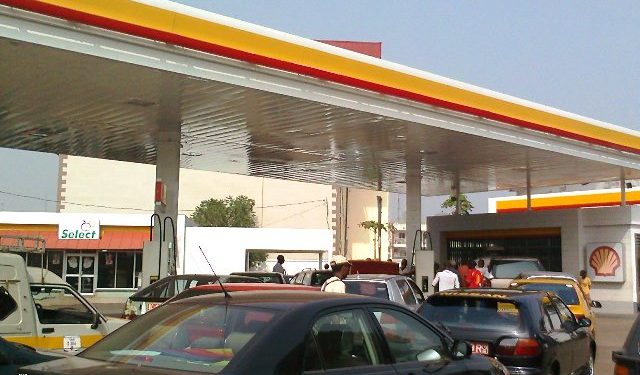The military junta in Guinea has succumbed to pressure and increased the prices of petroleum products at the pump.
Effective June 1st, the prices per liter of gasoline, diesel and oil are 12, 000 GNF, up from 10, 000 GNF, the government announced. This represents an increase of 20%, making the cost of the commodities in the country among the highest in the Mano River Union (MRU).
A statement from the Ministry of Economy, Finance and Planning read on state broadcaster RTG late on Tuesday said the decision was necessitated by factors at the international market.
The development comes two months after the junta led transition administration promised not to increase pump prices in spite of the impact of the global fuel crisis.
The Russia-Ukraine war has been blamed largely for shortage in supply of petroleum products across the world, occasioning a ripple effect on cost of living, with the consequent skyrocketing of prices of basic goods and services.
At the end of March 2022, the authorities issued a statement warning fuel dealers against hoarding, amid speculations about the possible increment, which followed reports of shortage of fuel with some gas stations reportedly refusing to sell.
Prior to this increment, Guinea had the second highest pump price in the MRU, at US$4.23 per gallon [1 gallon is roughly 3.785 liters], behind Liberia with the highest price at US$5.66 per gallon in the MRU. This ranking remains the same even with this development, but with slight difference between the two countries.
Sierra Leone has the third highest price at US$4.12 per gallon, with Cote d’Ivoire having the lowest price at US$4.11 per gallon.
Guinea has been under military rule since September 5, 2021, when the military led by Col. Mamady Doumbouya ousted Alpha Conde. It followed months of anti-government protests which was partly inspired by rise in cost of basic commodities, as well as hike in fuel prices.
The junta has been wary about the potential effect of worsening and already strained relations with the public which is concerned about the slow pace of the transition process.
In August 2021, former President Conde raised the prices of petroleum products from 9, 000 GNF to 11, 000 GNF. When the military took over, it reduced it to 10, 000 GNF.
Tuesday’s announcement came as a surprise to many Guineans, who fear its repercussion for an already challenging economic environment.
A leading trade union accused the government of taking a “unilateral decision”. The Union Syndicale des Travailleurs de Guinée (USTG) or Trade Union of Workers of Guinea, has called for a meeting today, Thursday June 2, to discuss its response.






















